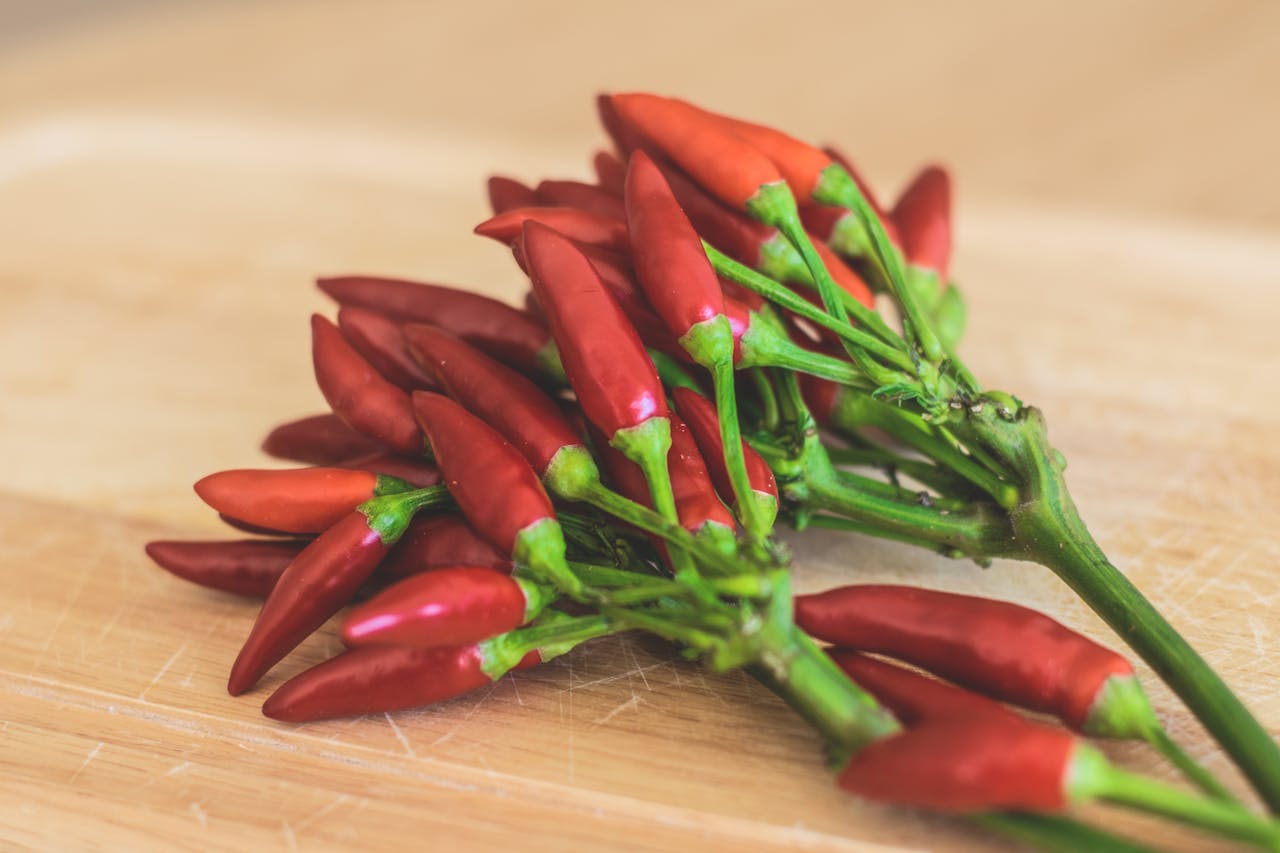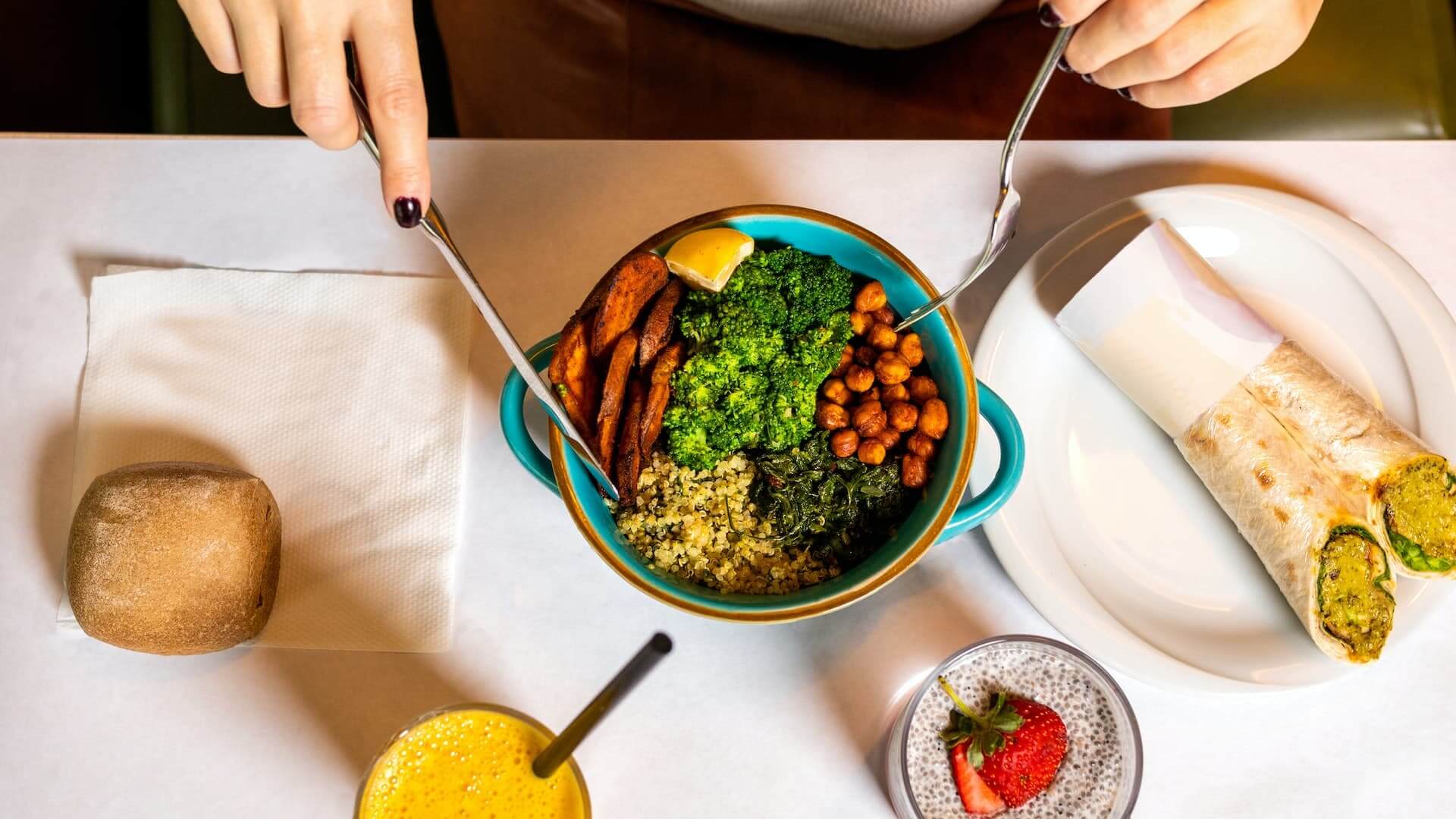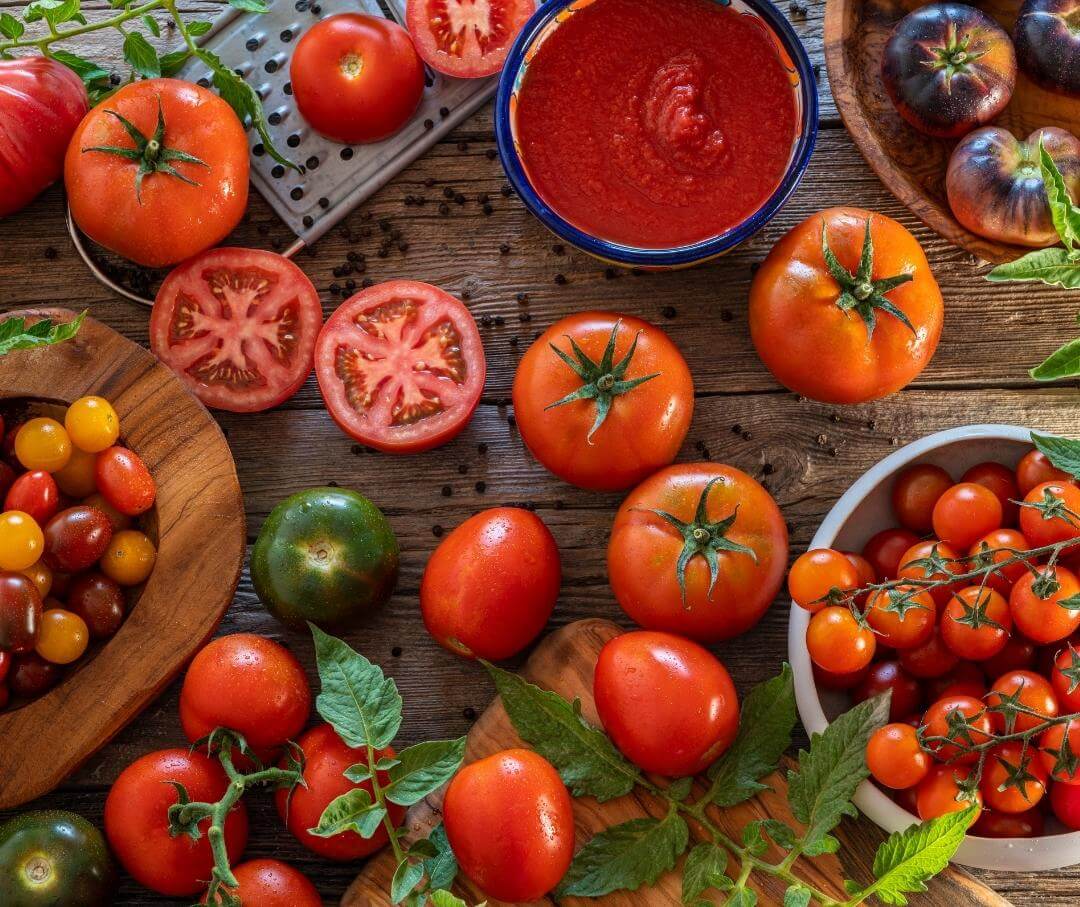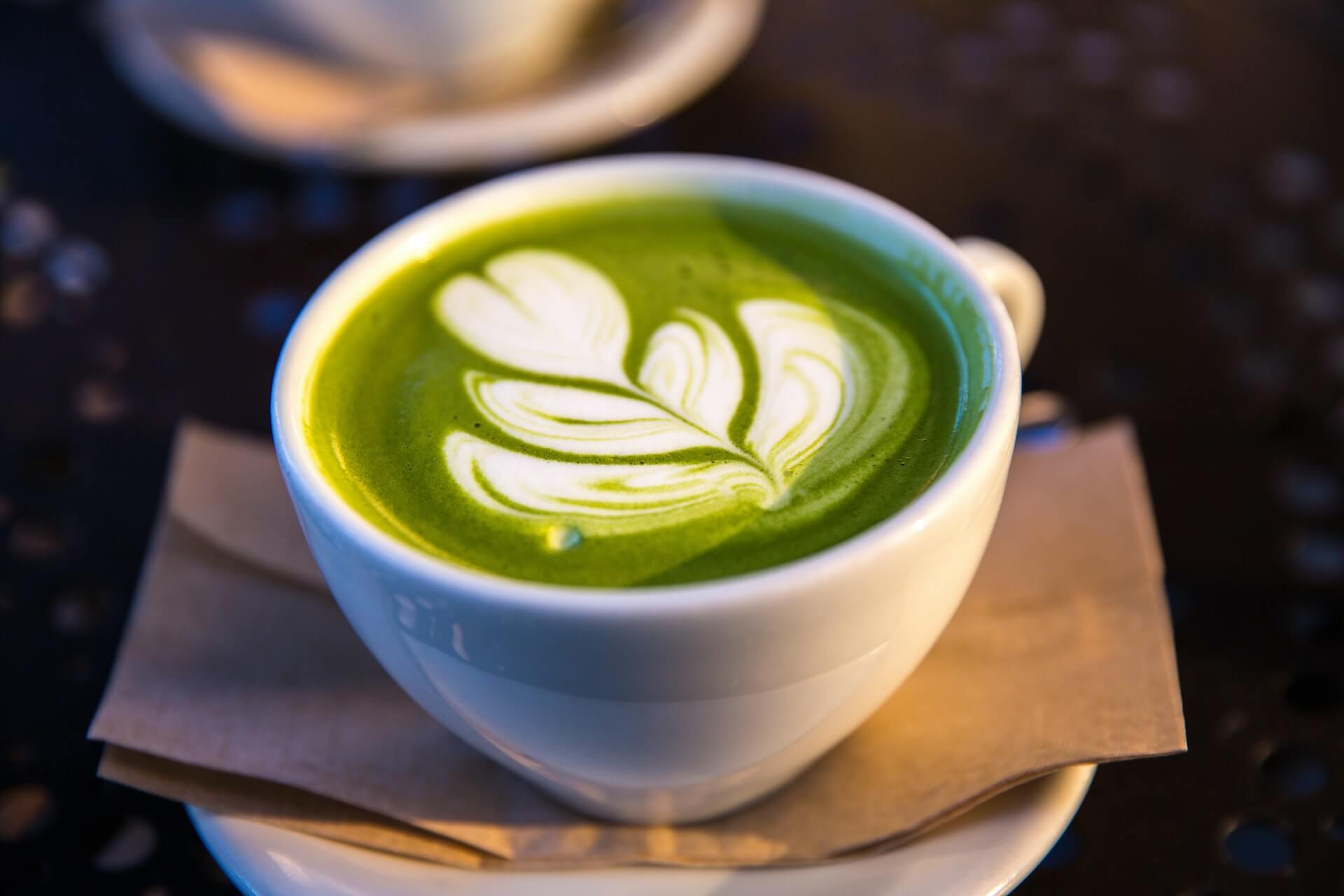Can turning up the heat in your meals have health benefits? Americans are not accustomed to fiery foods, and we often only hear about the negative downsides to eating spicy food—heartburn and indigestion, for example—but spicy foods are full of nutrients and compounds that can be part of a healthy diet. Let's take a look at the pros and cons of spice and some easy ways to increase the spiciness of your foods, or slowly ramp up your tolerance to eating more spice.
{{mid-cta}}
Potential Benefits of Spicy Food
The reason that spices are so vibrant and colorful is because of nutritious compounds—like capsaicin—that may support our health. Consuming spicy foods means cooking with more flavor, like with hot chili, and those nutrients have some serious benefits: metabolism boosts, heart health, even inflammation and cancer.
Here are some health benefits of cooking with spicy ingredients:
- Weight Loss and Metabolism: Spicy foods can temporarily boost metabolism from digestion, leading to increased calorie expenditure and potentially aiding in weight loss.1
- Improve Gut Health: The consumption of spicy foods may enhance gut health by promoting the growth of beneficial gut bacteria and improving digestion.
- Anti-aging Benefits: Studies suggest that regular consumption of spicy foods might be associated with increased longevity and a reduced risk of mortality from certain diseases.
- Support Heart Health: Capsaicinoids, the compound responsible for the heat in spicy foods, has been linked to improving high blood pressure and may have an effect on heart disease.2, 3
- Anti-inflammatory: Certain components of spicy foods, such as capsaicin, possess anti-inflammatory properties as antioxidants that may help reduce inflammation and support the immune system.
- Cancer Cells: Some research in mice suggests that capsaicin and other compounds found in spicy foods may have anticancer properties and could potentially inhibit the growth of cancer cells.4 However, other research seems to find a connection between certain cancers like esophageal and stomach cancers and consuming spicy foods in some populations.5
Disadvantages of Eating Spicy Food

If you've ever watched a food-eating competition, you've likely seen the image of a person who is overdone on spicy food and looks physically ill. Eating too much spicy food for your personal tolerance level can bring about unpleasant symptoms. Mostly involving digestive systems, spicy food can cause an upset stomach or, in severe cases, nausea and vomiting.
Here are some common "cons" of eating spicy foods:
- Nausea or Vomiting: Spicy foods can trigger nausea or vomiting in sensitive individuals, particularly if consumed in large quantities or if they are extremely spicy compared to what you’re used to eating.
- Diarrhea: The consumption of spicy foods may irritate the digestive tract and lead to diarrhea, especially in those with sensitive stomachs or pre-existing digestive issues.
- Heartburn: Spicy foods can worsen heartburn symptoms or trigger gastroesophageal reflux disease, or GERD, in some people, causing discomfort or a burning sensation in your chest. In extreme cases, worsened heartburn might impact developing gastrointestinal ulcers, which can become more inflamed with spicy foods.
- Stomach Pain: Spicy foods may cause abdominal discomfort or stomach pain, particularly in individuals with irritable bowel syndrome, IBS, or other gastrointestinal conditions.
If you have a sensitive stomach, know that you don't have a high tolerance for spicy food, or a pre-existing digestive condition, speak with your doctor or dietitian about whether or not increasing spicy food and your diet is right for you.
<p class="pro-tip"><strong>Also Read: </strong><a href="best-supplement-for-diabetes">10 Best Herbs and Supplements for Diabetes That May Help</a>.</p>
4 Ways to Make Your Meals Spicy
If you're looking to get the health benefits of spicy food but you're nervous about increasing the space in your meals, try these simple ways to incorporate spiciness into your day. There are a variety of ways to add some heat to your meals without incorporating a heavy hand of spice.
The best part about these tips is that you can increase the serving size as your comfort level and heat tolerance expand.
- Pickled Vegetables: Pickled jalapeños, peppers, or other spicy vegetables can add a tangy and fiery kick to salads, sandwiches, tacos, and more—no chili powder necessary.
- Kimchi: This Korean staple, made from fermented vegetables and chili peppers, not only packs a spicy punch but also adds complexity and depth of flavor to dishes like stir-fries, rice bowls, and soups. Plus, you’ll get a gut health boost from the naturally occurring probiotics for your gut microbiome in this fermented veggie.
- Hot Sauce: Whether you prefer classic Tabasco, sriracha, or a homemade hot sauce, adding a few dashes of hot sauce can instantly spice up eggs, burgers, pizza, or even cocktails.
- Chili Oil or Chili Crunch: Drizzling chili oil over noodles, rice dishes, stir-fries, or even pizza can add a bold and aromatic spiciness that elevates the overall flavor profile of the dish.
4 Tips to Increase Your Spice Tolerance

If you're not used to eating spicy food, you'll need to increase your tolerance. It takes time to develop a taste for more heat, and you want to make sure that you go slow and watch out for any negative consequences along the way. If you notice that you are having an adverse reaction to increasing spice, stop eating, drink a cold beverage, and consult with a healthcare provider, such as a Registered Dietitian, if you have a medical concern.
Here are several tips to increase your spice tolerance:
- Start Slow: Incorporate mildly spicy foods into your diet and gradually increase the heat level as your tolerance develops.
- Increase Over Time: Gradually introduce spicier ingredients or higher quantities of spices into your meals to allow your taste buds to adjust.
- Include Spicy Food More Often: Consistently incorporating spicy foods into your meals can help desensitize your taste buds and build your tolerance over time. Choose a variety of spice options to widen your palate to different kinds of spicy foods.
- Always Have a Cool Beverage: Keep a refresher like water, milk, or yogurt nearby to help soothe your palate if the side effects of the spice become too intense.
So, is spicy food good for you? The answer is yes if you follow these steps to increase your tolerance slowly.
Learn More About How to Improve Blood Sugar Health With Signos’ Expert Advice
Choosing the right medication is crucial for improving health, managing conditions like diabetes, and effectively controlling weight loss. Signos' expert advice can play a pivotal role in helping you navigate the complexities of managing your blood sugar. Additionally, Signos offers educational resources on the blog, providing valuable information and practical tips for maintaining optimal glucose levels and overall health. Curious to see how Signos can help you improve your health and manage your conditions more effectively? Take a quick quiz to find out if Signos is the right fit for you.
<p class="pro-tip"><strong>Learn More: </strong><a href="what-to-eat-before-bed-to-lose-weight">What to Eat Before Bed to Lose Weight: Best 12 Foods</a>.</p>
- Item 1
- Item 2
- item 3
Topics discussed in this article:
References
- Huang Z, Liu H. Spicy Food and Chili Peppers and Multiple Health Outcomes: Umbrella Review. Mol Nutr Food Res. 2022 Dec;66(23):e2200167.
- Huang Z, Liu H. Spicy Food and Chili Peppers and Multiple Health Outcomes: Umbrella Review. Mol Nutr Food Res. 2022 Dec;66(23):e2200167.
- Zhang Y, Lu ZL, Zhang WS, Jin YL, Zhu T, Xu L. Association between spicy foods consumption and cardiovascular disease risk factors: Guangzhou Biobank Cohort Study. BMC Public Health. 2022 Jun 30;22(1):1278.
- Mori A, Lehmann S, O'Kelly J, Kumagai T, Desmond JC, Pervan M, McBride WH, Kizaki M, Koeffler HP. Capsaicin, a component of red peppers, inhibits the growth of androgen-independent, p53 mutant prostate cancer cells. Cancer Res. 2006 Mar 15;66(6):3222-9.
- Ao Z, Huang Z, Liu H. Spicy Food and Chili Peppers and Multiple Health Outcomes: Umbrella Review. Mol Nutr Food Res. 2022 Dec;66(23):e2200167.
- Choe JW, Joo MK, Kim HJ, Lee BJ, Kim JH, Yeon JE, Park JJ, Kim JS, Byun KS, Bak YT. Foods Inducing Typical Gastroesophageal Reflux Disease Symptoms in Korea. J Neurogastroenterol Motil. 2017 Jul 30;23(3):363-369.


.jpg)





























